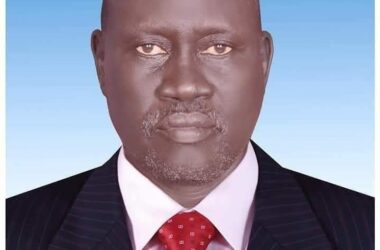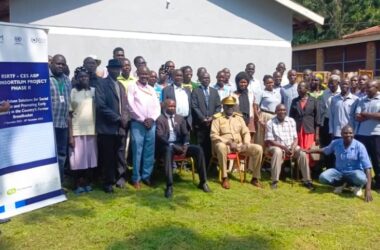By Adia Jildo
Butchers in Juba are threatening to lay down their tools as prices of cows’ rise. The Union of Butchers in Central Equatoria and other parts of the country said cattle dealers and bidders are being affected by the high prices of cattle.
The union said that absence of market for cattle auctions among other grievances leave butchers threatening to lay down their tools soon if their pleas are not resolved.
This came after the Butchers Union of Central Equatoria and the South Sudan Bucher’s’ Union merged to criticize the high prices of cattle dealers’ bids faced in the market which they say lead them to losses.
The union urged the government to allocate them land in town for cattle auction to act as their market with a set market price of cattle to reduce the losses incurred when they buy from cattle dealers.
The butchers said that the prices of bulls have shot up ever since the cattle camps that were near the city were detached therefore leaving the city with no cattle market.
The chairperson of the Butchers Union of Central Equatoria Buda Manyar said cattle dealers have been deliberately selling cattle to more than one person which causes disputes and losses eventually.
“Let the government address these issues. We need an auction market because if one has to buy bulls, they will have to be put in one place since there are no cattle camps,” he said.
Buda also said absence of cattle markets and fixed prices for cattle make the cattle owner/dealers to sell it at higher prices because of monopoly and at times selling the same bull to several persons and there are disputes that arise from this.
“The cattle camp has been dispatched. Up to now the prices of bulls have risen so far. We borrow the bull, slaughter and sell and later pay the money back to the owner. It’s difficult for us because when we make losses, the owners of the bull will come and take us to prison. The attorney will not relieve you according to the rule of law,” he said.
“We purchase one cow at 500,000 South Sudanese Pounds. When you sell it in kilos, it won’t bring you this amount of money. It can bring for you only 50,000 South Sudanese Pounds not equal to the money you used for buying,” he explained.
Buda also cited challenges such as absence of modern slaughter houses, taxations imposed by several authorities while transporting and high prices. He threatened that they are ready to put down their tools if issues are not addressed.
“We need land, standard slaughter house and if all this is provided, then we shall collect all these domestic animals in one place where we can access easily and buy it at a good price,” he said.
“We are not getting our rights. If the government is not able to listen to us, we will stop from this activity,” he added.
He stressed on the taxes imposed on them by the authority when one decides to rent a private slaughter house and how they lose per bull in the business.
“Private slaughter houses cost about 2,000 South Sudanese Pounds per bull while the Executive Directors at Juba City Council both in town and the local area will tax per bull 2,000 South Sudanese Pounds which is a big cost on their business thereby contributing to losses.”


